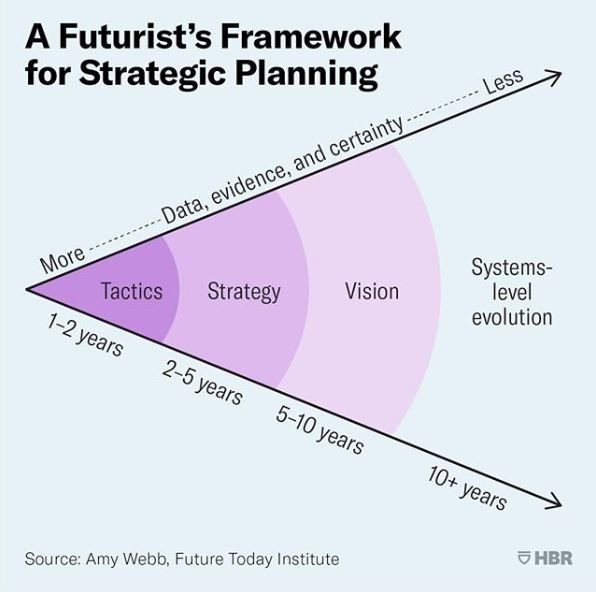Plan or Strategy? (Hint: You Need Both!)
We’ve had a lot of inquiries of late from school and NFP leaders who want to launch a strategic planning process. We always start by talking with them about their why: Why now? Why a plan? What do they hope will happen as a result?
Once we have a sense of what brings them to us, we talk a bit about what we feel is important to communicate about our approach. Simply stated, that a plan is not a strategy. Perhaps strategic planning can be reimagined as an umbrella term to describe the creation of strategy and the act of planning to execute.
I’ve written a lot on this topic, but think it’s helpful sometimes to refresh these ideas in new ways. Here are a few key differences between a plan and your strategy - what did I miss? Let me know in the comments!
Scope and Timeframe:
A strategy is wide in scope and conveys a few key choices or decisions that move you towards your vision over the next few years.
A plan is narrowly targeted, short term and lays out tactics and actions as you move forward. It’s incremental.
Orientation or External vs Internal Focus:
A strategy orients your school externally and defines your unique value proposition - as Roger Martin describes “where to play and how to win” - as you achieve a vision for impact.
A plan orients you internally - what systems and capabilities are we building and what steps are we taking to fulfill our strategy? They are related, but different.
Commitment and Flexibility:
A strategy is about making commitments - a few key decisions that focus resources and in turn, clarify what you won’t do. It can endure over several years as you move towards your vision for impact- even as your short term tactics adapt.
A plan is prescriptive in the short term, but flexible as you learn, gather new data, and iterate. You prototype and pilot, refine, and redirect. If you are strictly crafting and then adhering to a plan over say, two or three years you’ll likely find much of it gets trashed as you reconfigure to navigate conditions you could not or did not predict.
Imagination and Objective Certainty:
A strategy requires creativity - making bets and forming a hypothesis about how to succeed that cannot be grounded in data or a look in the rear view mirror. In other words: “what got you here won’t get you there”. Strategy demands new thinking, innovation, and a testing of underlying assumptions
A plan considers what you do know, based on data, your SWOT analysis, and how you take action in the present tense. You may need to close some gaps, align to values, and respond to immediate threats. But with a strategy, you can design tactics that attend to the present as they evolve you towards the vision you have for success.
Visuals can help. We like Amy Webb’s framework to convey how a plans (tactics) are related to, but different from, strategy.

